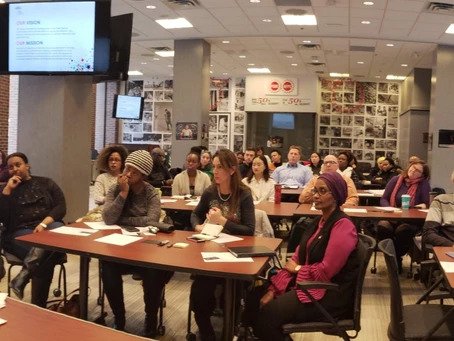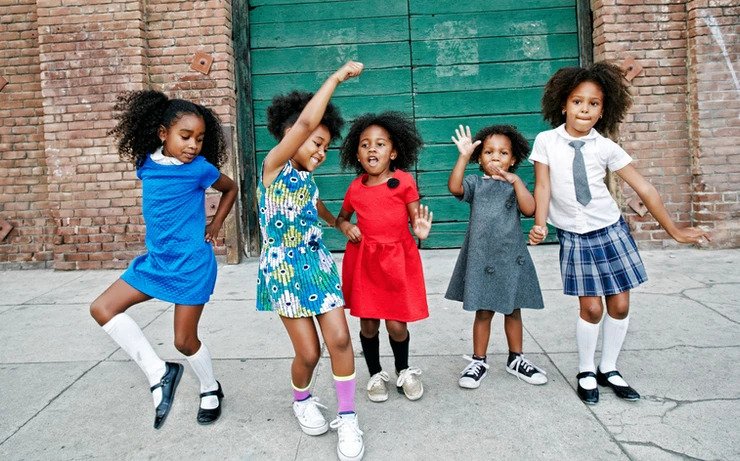Dear Educator Colleagues:
Have you ever heard the following?
“It’s okay to discuss race, as long as you don’t bring it up first.”
“Sure, you can talk about the protests, just don’t have an opinion.”
“A parent has called to speak with me about the article you used that connected the recent insurrection in the United States to Canada. What exactly are you teaching?”
There have been times in my career where I have been questioned about the curriculum and content I was teaching. One particular instance was in relation to a book that I wanted to teach, one that was outside of the “curriculum” set by my department. It was A.D. New Orleans After the Deluge by Josh Neufeld, a graphic novel based on the lives of seven individuals and their experiences before, during, and after Hurricane Katrina. When I approached my department head about teaching this unit of study, I was sent to my principal who was concerned about how I would respond to a parent should one complain about the content and the language in the text. For the principal, teaching about the systemic racism that led to the death of so many individuals was not the priority. The priority was how we would respond to complaints from parents. Despite the concerns raised, I decided to teach the text because I believed in the social justice issues we would study as a class. Studying this text enabled students to examine racism and the devastating systems of white supremacy at work in New Orleans. In the end, parents did not complain; but I often think about what my principal would have done to support me and the students if we received complaints.
As a teacher, this type of experience can make you doubt yourself, but also your ability to teach about racism and anti-racism in your classrooms. These experiences can give you pause, even worry you. But the reality is, education should provide liberation and freedom from the very systems oppressing you and your students. How can we do this without the fears of being reprimanded, silenced, or alienated? How can we do this with courage and confidence?
We can look to policy, strategy, and curriculum in Ontario to confirm that as educators we should be talking and teaching about racism and anti-racism, equity and diversity, and oppression. We should not fear engaging in conversations and learning opportunities with our students, colleagues, families and communities.
The 2009 Equity and Inclusive Schools Strategy seeks “to promote inclusive education, as well as to understand, identify, and eliminate the biases, barriers, and power dynamics that limit our students’ prospects for learning, growing, and fully contributing to society”. According to the follow-up 2017 Equity Action Plan, students should “experience teaching and learning that is reflective of their needs and of who they are.”
Furthermore, the Ethical Standards of Care and Respect from the Ontario College of Teachers fully align and support discussing anti-racism and social justice in our classrooms: “Members honour human dignity, emotional wellness, and cognitive development. In their professional practice, they model respect for spiritual and cultural values, social justice, confidentiality, freedom, democracy, and the environment.” According to the Ontario Teachers’ Federation, teachers should “promote education for a global perspective in the teaching / learning process; and that curriculum and related activities incorporate, where appropriate, the critical examination of … issues of human rights, social justice, social responsibility and equity”. The Federation is also clear that “teachers have the right to debate or advocate issues of social conscience without prejudice to their employment”.
Teaching about racism and anti-racism has even made it into the most recent update of the Ontario Curriculum (2020-2021) Grades 1-12. The front matter of every subject curriculum contains “Considerations in Program Planning for Teachers”, which now includes a complete section on Human Rights, Equity, and Inclusive Education, diving deeply into Inclusive Education and Culturally Responsive and Relevant Pedagogy. The new curriculum indicates that if educators do not implement inclusive education, we would be contributing to the inequities students experience: “the absence of inclusive approaches to education can create discriminatory environments, in which certain individuals or groups cannot expect to receive fair treatment or an equitable experience based on aspects of their identity.”
Additionally, the front matter also includes “Transferable Skills” that students should be developing. One of these transferrable skills is Global Citizenship and Sustainability. This involves understanding diverse world views and perspectives in order to effectively address the various political, environmental, social, and economic issues that are central to living sustainably in today’s interconnected and interdependent world.
Even the Kindergarten Program calls for students to “engage in learning opportunities that increase their awareness of others and foster respect for individual differences; develop an appreciation of diversity and an understanding of the concepts of equity, equality, fairness, tolerance, respect, and justice.”
What does all of this mean? You can teach and discuss racism and anti-racism with confidence. It is not only the right thing to do, but it is required of you. As educators, we must engage in these conversations with students, colleagues and families to dismantle oppressive and inequitable systems.
Sincerely and with gratitude,
A Fellow Educator





I concur that educators should support inclusive education and recognize, address, and eradicate the prejudices, obstacles, and power dynamics that prevent our kids from properly learning, developing, and contributing to society. I believe that anti-racism courses are crucial because they provide individuals with the knowledge, awareness, and tools to actively challenge and dismantle racism. By educating ourselves on the historical context, systemic issues, and personal biases related to racism, we can work towards creating a more inclusive and equitable society where everyone is treated with dignity and respect, regardless of their race or ethnicity.